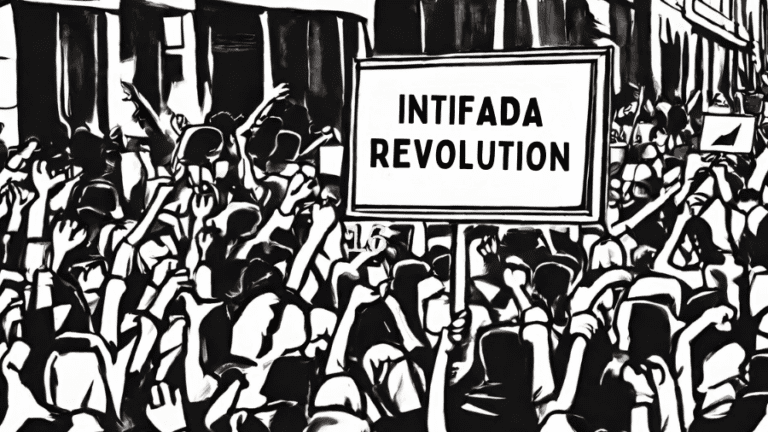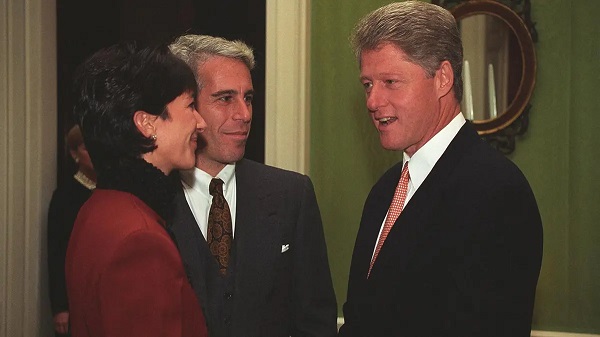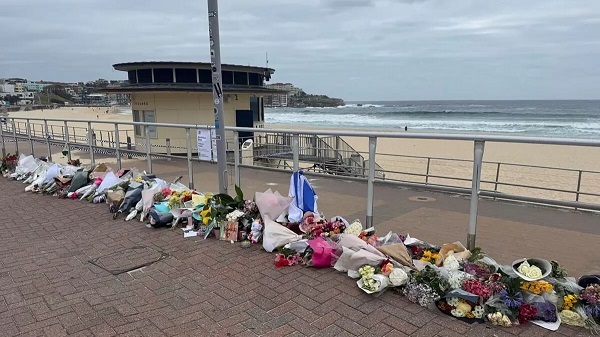International
Globalizing intifada is the same as globalizing jihad: Hussain Ehsani

From the MacDonald Laurier Institute
By Hussain Ehsani
Canadian authorities must realize that calls for “intifada” constitute hate and even potentially an incitement to violence
When ISIS conducted its terrorist attacks on Mosul, Iraq in June 2014, several Mosul residents celebrated it as a victory for the terror group and welcomed them to the city. In March 2019, ISIS was defeated in a fight with Kurdish special units Peshmerga, Iraqi Forces, and the international coalition, and this time, five years later, Mosul celebrated the defeat of ISIS. Mosul had learned its lesson under ISIS’ reign of terror. Likewise, the fantasy of celebrating Islamic Jihadist and terrorist groups as liberators has disappeared, for the most part, across the Middle East.
However, the same cannot be said about the veneration of terror in the West. Less than 24 hours after the brutal October 7 terrorist attacks by Hamas on civilians and the Jewish state, Canada witnessed horrific and unimaginable scenes. People across the country paraded with Palestinian flags, chanting “Allah Akbar,” “Free Palestine,” “From the river to the sea, Palestine will be free,” and “Long live Intifada” — celebrating the Hamas attack that resulted in the murder of 1,200 Israelis. The scenes reminded me of Mosul’s celebration of ISIS’ victory in 2014, but this time they took place in in Mississauga, Ontario.
As Israel began its counter-terror operation the mobs became more aggressive – organizing rallies across the country, blocking intersections, threatening Jewish Businesses, attacking synagogues with guns and Molotov cocktails, and issuing bomb threat against the largest Jewish high school in Canada.
Although Hamas, Palestinian Islamic Jihad (PIJ), and the Popular Front for the Liberation of Palestine (PFLP) are listed as terrorist organizations by the Government of Canada, these groups are being praised by the pro-Jihadi mobs. They have flown the flag Hamas and the PFLP, they have worn green headbands representing Hamas, and yellow armbands of PIJ. Some in Toronto even raised the flag of the Taliban. Others have worn jackets with the symbols of Jihad, martyrs, and Al Qaeda symbols during protests. All while they scream “Intifada, intifada, long live the intifada,” “Globalize the intifada,” and “There is only one solution, intifada, revolution” – unmistakable calls for violence against Jews that refer to the bloody Palestinian terror campaigns of the late 80s and early 2000s.
Despite the clear connection between the terror groups and this violent call, law enforcement across the country have been reluctant to act and make arrests on those shouting “Intifada.” This refusal encourages the pro Hamas mobs to continue their antisemitic rallies and disguises calling for violence as a progressive solution for the Palestinian cause.
There is no doubt that calling for intifada is calling for violence. This is most clearly demonstrated by the Second Palestinian Intifada which consisted of suicide bombings, shootings, stabbings, and other terror tactics. These tactics have been used by other major Islamic Jihadist groups such as the Taliban, ISIS, and Al Qaeda. In April 1993, during the first Intifada, Hamas suicide bomber Saher Tamam Al Nablusi detonated the switch under the seats in his car and blew himself up on the West Bank. Based on the result of this attack, Hamas and its allies kicked off massive campaign of suicide attacks up against Israel. According to the statistics of Israeli institutions and studies, during two phases of Intifada, Hamas, PIJ, and PFLP conducted more than 130 suicide attacks. In the aftermath of the Intifada, the tactic of car bombs was vastly used by the Haqqani network in Afghanistan, Al Qaeda in Iraq, the Taliban in Afghanistan, and ISIS in Iraq and Syria.
And Intifada is not restricted to terror attacks but includes a clear strategy undergirded by religious ideology. For example, the book “Palestinian Resistance against Israel in Jerusalem” lays out the rhetoric and chants that Palestinians shouted in protests during the first Intifada, including: “Khaybar Khaybar O Jewish! The Mohammad Army will come back.” This chant refers to the Battle of Khaybar in which Muslims fought against the Jews in the first era of Islam in the Khaybar district of Medina in Hejaz in early 628 CE, which led to the victory of Muslims. “Mohammad Army” in this context is a metaphor for all Muslims around the world, and the chant is calling all Muslims to assemble another Khyabar, which strives to provoke and unite all Muslims against Jews. Another example “Praise the God O Muslim – explode the head of Zionist.” This chant was yelled in Toronto, Ontario. This has no other meaning except Jihad and the militarization of Muslims around the world to eliminate Jews and Israelis.
Hamas, Palestinian Islamic Jihad, and their allies are utilizing Jihadi tactics to pursue their objectives here in Canada. Calling for “Intifada” in the streets, malls, subway stations, and university campuses in Canada is a direct call for Jihadism and its principles to be enacted in the West. This is why the globalization of Intifada means globalizing the Jihad. It means globalizing violence against Jews.
Canadian authorities should realize that calls for “intifada” constitute hate and even potentially an incitement to violence. If they fail to, it will not be long until we see ISIS flags and chants for reviving the Caliphate. They are one and the same and we cannot allow this hate to fester unaddressed.
Hussain Ehsani is a Middle East affairs expert focused on the Abraham Accords and Canadian foreign policy.
Daily Caller
‘Almost Sounds Made Up’: Jeffrey Epstein Was Bill Clinton Plus-One At Moroccan King’s Wedding, Per Report


From the Daily Caller News Foundation
Former President Bill Clinton personally asked to bring Jeffrey Epstein and Ghislaine Maxwell as guests to the Moroccan King Mohammed VI’s 2002 wedding, a move that unsettled Clinton’s own aides, the New York Post reported Thursday.
Clinton requested permission to include Epstein and Maxwell at the royal wedding in Rabat despite neither having any official relationship with the Moroccan royal family, the Post reported. Sources told the outlet that Clinton’s request was viewed internally as inappropriate and has quietly circulated in Democratic circles for more than two decades.
“[Clinton] brought them as guests to a king’s wedding. I mean, it almost sounds made up,” one source familiar with the matter told the outlet. “How many times in your life have you been invited as a guest of a guest at a wedding?”
As a nonprofit, we are dependent on the generosity of our readers.
Please consider making a small donation of any amount here.
Thank you!

Clinton traveled to Morocco with Epstein and Maxwell aboard Epstein’s private jet, dubbed the “Lolita Express,” according to the Post. Chelsea Clinton attended separately, and then-Sen. Hillary Clinton remained in Washington due to her schedule.
“[Former First Lady] Hillary [Clinton] was in the Senate, so she couldn’t go. Chelsea very much wanted to go, and the president very much wanted to go,” a second person told the outlet. “The idea that they would take [Epstein] was a head-scratcher. But nonetheless, the Clinton office moved forward and made this request … to bring these two guests, and that’s what happened.”
Once in Rabat, Clinton, Epstein and Maxwell were seated with King Mohammed VI during the black-tie wedding dinner, sources said. At one point, Chelsea Clinton requested a group photograph that included her father, Epstein and Maxwell.
Maxwell is currently serving a 20-year federal prison sentence for sex trafficking conspiracy and related offenses. Epstein died in jail in 2019 while awaiting trial on federal sex trafficking charges. Their crimes were not publicly known at the time of the wedding.
The Clintons continue to downplay the extent of their past relationship with Epstein, maintaining that they cut off contact with him in 2005, three years before he pleaded guilty to state sex crimes in Florida.
Clinton spokesman Angel Ureña previously told the outlet that Clinton took four trips aboard Epstein’s jet between 2002 and 2003 and denied that Clinton ever visited Epstein’s private island or residences.
“I don’t know how many times we need to say there was travel more than 20 years ago before he was cut off. Apparently, we need to one more time. But nice try,” Ureña said, according to the outlet.

Neither of the sources quoted by the New York Post said they believed Clinton was aware of Epstein trafficking or sexually abusing children, but did say the ex-president is downplaying his former links to both Epstein and Maxwell.
The Clinton Foundation did not respond to the Daily Caller News Foundation’s request for comment.
Both Bill and Hillary are scheduled to give depositions in January to the House Oversight and Government Reform Committee about their ties to Epstein. The Oversight Committee subpoenaed the Clintons in August, and Committee Chairman James Comer said that if the Clintons didn’t appear for depositions scheduled for Dec. 17 and 18 or arrange to appear for questioning in early January, then contempt charges would be pursued.
Photos released by Oversight Committee Democrats in December show Epstein with prominent figures, including President Donald Trump, Bill Clinton, Microsoft co-founder Bill Gates and Steve Bannon.
The Department of Justice is expected to release a new trove of documents related to the Epstein investigation Friday.
Crime
Brown University shooter dead of apparent self-inflicted gunshot wound

From The Center Square
By
Rhode Island officials said the suspected gunman in the Brown University mass shooting has been found dead of an apparent self-inflicted gunshot wound, more than 50 miles away in a storage facility in southern New Hampshire.
The shooter was identified as Claudio Manuel Neves-Valente, a 48-year-old Brown student and Portuguese national. Neves-Valente was found dead with a satchel containing two firearms inside in the storage facility, authorities said.
“He took his own life tonight,” Providence police chief Oscar Perez said at a press conference, noting that local, state and federal law officials spent days poring over video evidence, license plate data and hundreds of investigative tips in pursuit of the suspect.
Perez credited cooperation between federal state and local law enforcement officials, as well as the Providence community, which he said provided the video evidence needed to help authorities crack the case.
“The community stepped up,” he said. “It was all about groundwork, public assistance, interviews with individuals, and good old fashioned policing.”
Rhode Island Attorney General Peter Neronha said the “person of interest” identified by private videos contacted authorities on Wednesday and provided information that led to his whereabouts.
“He blew the case right open, blew it open,” Neronha said. “That person led us to the car, which led us to the name, which led us to the photograph of that individual.”
“And that’s how these cases sometimes go,” he said. “You can feel like you’re not making a lot of progress. You can feel like you’re chasing leaves and they don’t work out. But the team keeps going.”
The discovery of the suspect’s body caps an intense six-day manhunt spanning several New England states, which put communities from Providence to southern New Hampshire on edge.
“We got him,” FBI special agent in charge for Boston Ted Docks said at Thursday night’s briefing. “Even though the suspect was found dead tonight our work is not done. There are many questions that need to be answered.”
He said the FBI deployed around 500 agents to assist local authorities in the investigation, in addition to offering a $50,000 reward. He says that officials are still looking into the suspect’s motive.
Two students were killed and nine others were injured in the Brown University shooting Saturday, which happened when an undetected gunman entered the Barus and Holley building on campus, where students were taking exams before the holiday break. Providence authorities briefly detained a person in the shooting earlier in the week, but then released them.
Investigators said they are also examining the possibility that the Brown case is connected to the killing of a Massachusetts Institute of Technology professor in his hometown.
An unidentified gunman shot MIT professor Nuno Loureiro multiple times inside his home in Brookline, about 50 miles north of Providence, according to authorities. He died at a local hospital on Tuesday.
Leah Foley, U.S. attorney for Massachusetts, was expected to hold a news briefing late Thursday night to discuss the connection with the MIT shooting.
-

 Crime4 hours ago
Crime4 hours agoBrown University shooter dead of apparent self-inflicted gunshot wound
-

 Business2 days ago
Business2 days agoOttawa Pretends To Pivot But Keeps Spending Like Trudeau
-

 Business15 hours ago
Business15 hours agoCanada Hits the Brakes on Population
-

 Energy2 days ago
Energy2 days agoLiberals Twisted Themselves Into Pretzels Over Their Own Pipeline MOU
-

 Frontier Centre for Public Policy17 hours ago
Frontier Centre for Public Policy17 hours agoCanada Lets Child-Porn Offenders Off Easy While Targeting Bible Believers
-

 Censorship Industrial Complex2 days ago
Censorship Industrial Complex2 days agoHow Wikipedia Got Captured: Leftist Editors & Foreign Influence On Internet’s Biggest Source of Info
-

 International2 days ago
International2 days agoBondi Beach Shows Why Self-Defense Is a Vital Right
-

 Crime2 days ago
Crime2 days agoThe Uncomfortable Demographics of Islamist Bloodshed—and Why “Islamophobia” Deflection Increases the Threat








